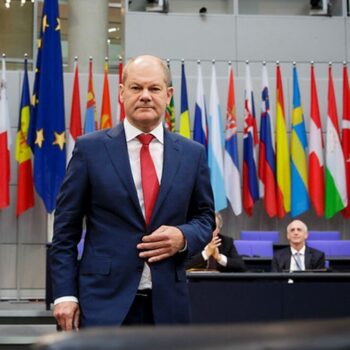The International Energy Agency (IEA) published a report on decarbonising heavy industry in G7 Members today. The report highlights the leading role G7 members should take in accelerating the decarbonisation of heavy industries such as steel, and cement, and ‘provides clear and actionable recommendations for the upcoming G7 Climate and Energy Ministerial.’
Story – IEA report on heavy industry decarbonisation and G7
A new International Energy Agency (IEA) report has outlined 10 key actions that G7 Members must take to accelerate the decarbonisation of heavy industry towards net-zero greenhouse gas emissions.
The report, requested by the German G7 presidency is set to inform the G7 Climate and Energy Ministerial meeting on 25 – 27 May. It showcases the disproportionate impact that G7 countries can have on accelerating the transition of heavy industries such as steel and cement by taking a lead in technology innovation, provision of finance and policy development.
Civil society organisations, including E3G, have long called for governments to take a more active role in the decarbonisation of heavy industry. This IEA report clearly highlights the leading role that G7 countries can play in kick-starting the global decarbonisation of industries such as steel and cement.
Michele Rimini, E3G Programme Leader on Industrial Transition and Trade said:
“The report provides an excellent roadmap for the G7 to assume leadership in driving a global race towards reducing emissions in heavy industry sectors. G7 countries can evaluate a rich menu of policy options and agree on collective actions to spearhead industrial decarbonisation by leveraging their innovation and investment capacity, while, at the same time, bringing key industrial powerhouses along the way.”
Katinka Lund Waagsaether, E3G Senior Policy advisor on steel decarbonisation said:
“The message for G7 countries is clear – the pathway to net-zero by 2050 requires all new industrial capacity additions from 2030 to feature near-zero emission technologies or near-zero technology pathways. By pointing to how 90% of European Union and 80% of US steelmaking capacity is facing major reinvestment decisions in the coming decade, the IEA further highlights the crucial window period that we are in. The time for G7 to act on steel is now.”
Domien Vangenechten, E3G Policy Advisor on industrial decarbonisation said:
“It is great to see the IEA report weigh in on the issue of ‘climate clubs,’ the climate priority of Germany’s G7 presidency. The report rightly concludes that a narrow focus on carbon pricing is not the way to go and calls for an alliance where membership depends on concrete commitments on industrial decarbonisation, which has an open-door policy to members beyond the G7. This is the right way to go.”
Available for comment
Climate clubs and industrial decarbonisation
Domien Vangenechten, Policy Advisor, E3G
m: +32 (0) 474 87 18 2, domien.vangenechten@e3g.org
Industrial decarbonisation and international relations
Michele Rimini, Programme Leader, E3G
m: +32 (0) 492 11 38 69, michele.rimini@e3g.org
-ENDS-
Notes to Editors
- E3G is an independent European climate change think tank with a global outlook. We work on the frontier of the climate landscape, tackling the barriers and advancing the solutions to a safe climate. Our goal is to translate climate politics, economics and policies into action. About – E3G
- For further enquiries email press@e3g.org or phone +44 (0)7783 787 863
- E3G publication on the role a climate club can play in accelerating industrial decarbonisation.


